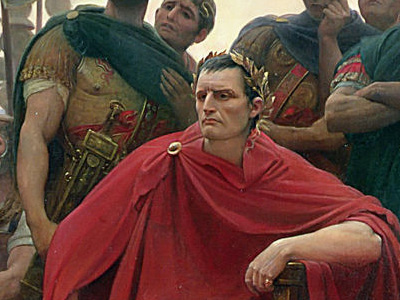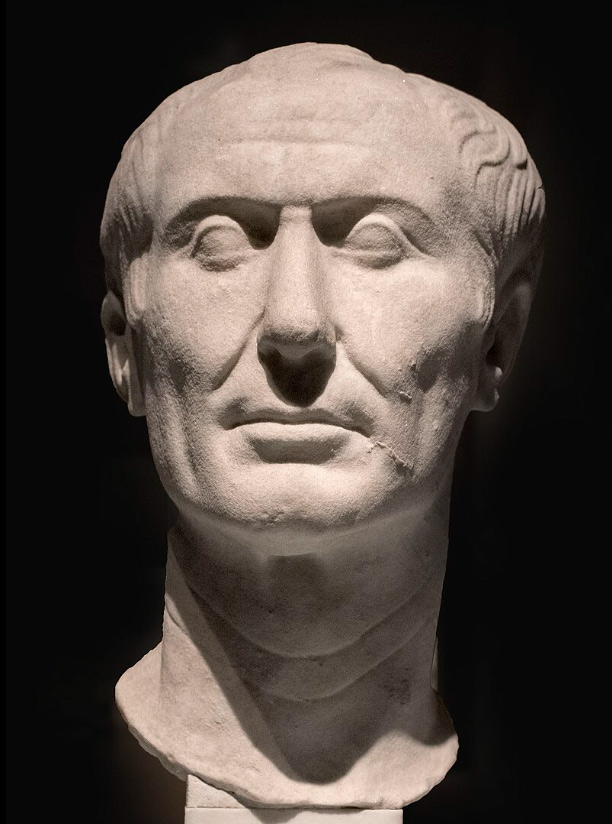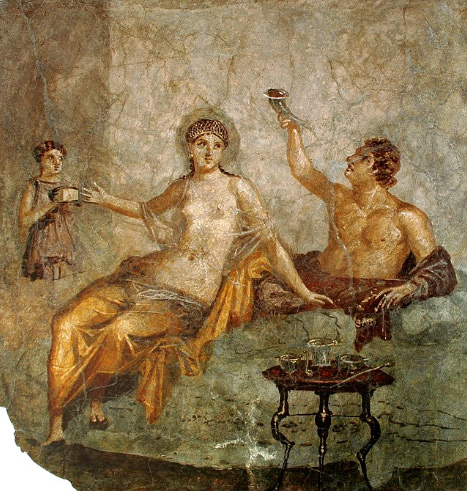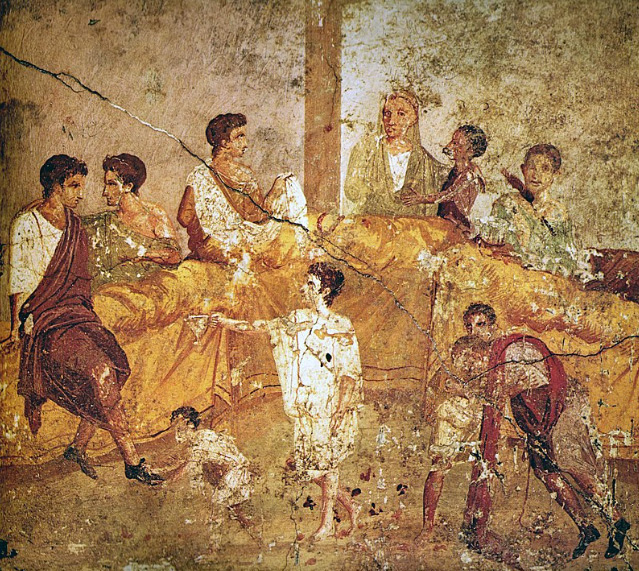Julius Caesar (100-44 BC)
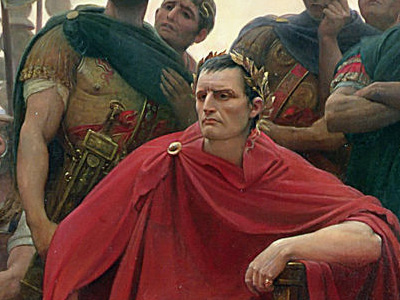
Consulship
In 60 BC, Caesar sought election as consul for 59 BC, along with two other candidates. The election was sordid – even Cato, with his reputation for incorruptibility, is said to have resorted to bribery in favour of one of Caesar's opponents. Caesar won, along with conservative Marcus Bibulus.
Caesar was already in Crassus' political debt, but he also made overtures to Pompey. Pompey and Crassus had been at odds for a decade, so Caesar tried to reconcile them. The three of them had enough money and political influence to control public business. This informal alliance, known as the First Triumvirate ("rule of three men"), was cemented by the marriage of Pompey to Caesar's daughter Julia. Caesar also married again, this time Calpurnia, who was the daughter of another powerful senator.
Caesar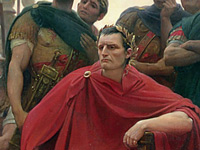 Julius Caesar (100-44 BC), was a Roman politician and general who played a critical role in the events that led to the demise of the Roman Republic and the rise of the Roman Empire. Caesar is considered by many historians to be one of the greatest military commanders in history. Julius Caesar » proposed a law for redistributing public lands to the poor—by force of arms, if need be—a proposal supported by Pompey and by Crassus, making the triumvirate public. Pompey filled the city with soldiers, a move which intimidated the triumvirate's opponents. Bibulus attempted to declare the omens unfavourable and thus void the new law, but he was driven from the forum by Caesar's armed supporters. His bodyguards had their ceremonial axes broken, two high magistrates accompanying him were wounded, and he had a bucket of excrement thrown over him. In fear of his life, he retired to his house for the rest of the year, issuing occasional proclamations of bad omens. These attempts proved ineffective in obstructing Caesar's legislation. Roman satirists ever after referred to the year as "the consulship of Julius and Caesar."
Julius Caesar (100-44 BC), was a Roman politician and general who played a critical role in the events that led to the demise of the Roman Republic and the rise of the Roman Empire. Caesar is considered by many historians to be one of the greatest military commanders in history. Julius Caesar » proposed a law for redistributing public lands to the poor—by force of arms, if need be—a proposal supported by Pompey and by Crassus, making the triumvirate public. Pompey filled the city with soldiers, a move which intimidated the triumvirate's opponents. Bibulus attempted to declare the omens unfavourable and thus void the new law, but he was driven from the forum by Caesar's armed supporters. His bodyguards had their ceremonial axes broken, two high magistrates accompanying him were wounded, and he had a bucket of excrement thrown over him. In fear of his life, he retired to his house for the rest of the year, issuing occasional proclamations of bad omens. These attempts proved ineffective in obstructing Caesar's legislation. Roman satirists ever after referred to the year as "the consulship of Julius and Caesar."
When Caesar was first elected, the aristocracy tried to limit his future power by allotting the woods and pastures of Italy, rather than the governorship of a province, as his military command duty after his year in office was over. With the help of political allies, Caesar later overturned this, and was instead appointed to govern Cisalpine Gaul (northern Italy) and Illyricum (southeastern Europe), with Transalpine Gaul (southern France) later added, giving him command of four legions. The term of his governorship, and thus his immunity from prosecution, was set at five years, rather than the usual one. When his consulship ended, Caesar narrowly avoided prosecution for the irregularities of his year in office, and quickly left for his province.
HISTORY
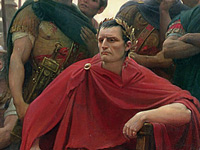
RESOURCES
This article uses material from the Wikipedia article "Julius Caesar", which is released under the Creative Commons Attribution-Share-Alike License 3.0.
© Stories Preschool. All Rights Reserved.
